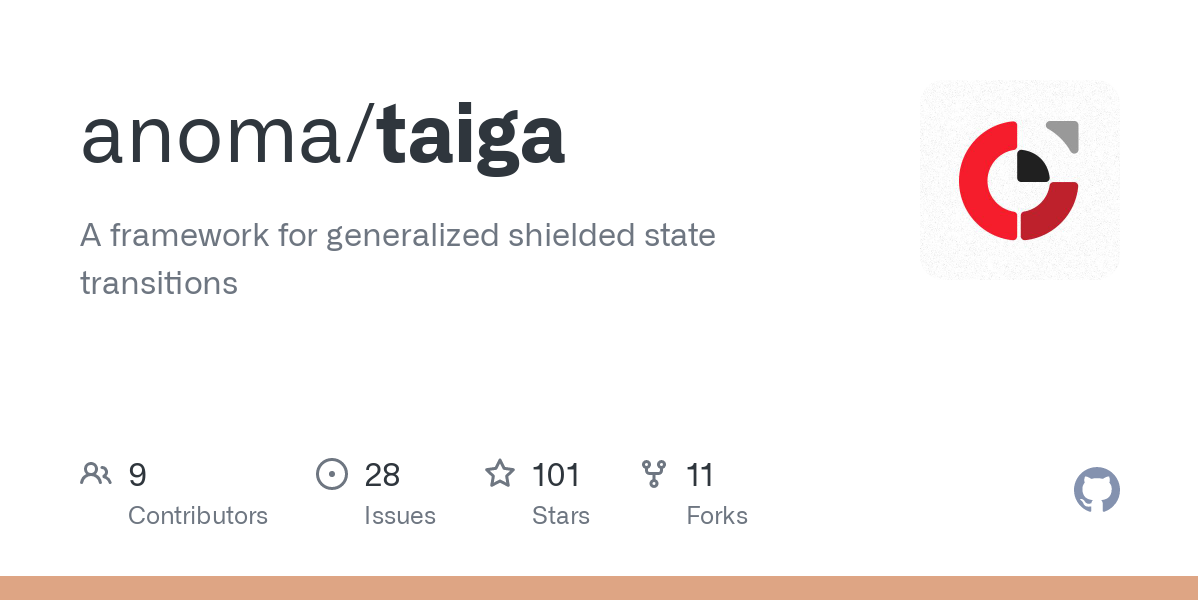# Yulia Khalniyazova - Taiga Book - Execution (Highlights)

## Metadata
**Review**:: [readwise.io](https://readwise.io/bookreview/33229130)
**Source**:: #from/readwise #from/reader
**Zettel**:: #zettel/fleeting
**Status**:: #x
**Authors**:: [[Yulia Khalniyazova]]
**Full Title**:: Taiga Book - Execution
**Category**:: #articles #readwise/articles
**Category Icon**:: 📰
**URL**:: [github.com](https://github.com/anoma/taiga/blob/main/book/src/exec.md)
**Host**:: [[github.com]]
**Highlighted**:: [[2023-10-16]]
**Created**:: [[2023-10-16]]
## Highlights
- Taiga's execution model relies on the ideas of intents and solvers. Users express their interests and provide the resources to the solvers, and Taiga makes sure that the intents are satisfied atomically. ([View Highlight](https://read.readwise.io/read/01hcv2wwem61qmyez49tz41ae9)) ^611214776
CKB otx
- We call a **partial transaction** a state transition for which all VPs evaluate to True, but the state transition is unbalanced. ([View Highlight](https://read.readwise.io/read/01hcv30p6mn3aa7chs7gjqc7rk)) ^611215409
Solvers must balance the transaction.
- We are considering the model where a solver makes one step at a time and sends the step result back to the gossip network, where the partial solution meets the next solver in the chain. In practice, the solver can continue solving instead of sending the result back to the gossip network if they can make the next step. ([View Highlight](https://read.readwise.io/read/01hcv34jdfdyvy921zq8tzhday)) ^611216164
Same ideas when designing CKB opentx pool
- Solvers cannot modify the old data, only create new. ([View Highlight](https://read.readwise.io/read/01hcv35mqb8b9qatnmjzjgyk3y)) ^611216213
- • All total per-token balances are equal to the balancing values. A valid transaction can be created and published. ([View Highlight](https://read.readwise.io/read/01hcv377nzs6vjcrczjcwypkeh)) ^611216346
How to check a tx is final.
- When a user knows what they want, they can directly create the notes that they want for themselves, and the counterparty will have to spend the notes that the user has created, balancing the transaction. Such approach works well when a party knows exactly what they want, but if a user can be satisfied with multiple possible state transitions, such approach wouldn't work well. In that case, they can use the help of the [intent application](https://github.com/anoma/taiga/blob/main/book/src/intent.md). ([View Highlight](https://read.readwise.io/read/01hcv38ww83qqxrkq2yz076ntc)) ^611216589
Creating the exact output or specifying the intent and let solver create the outputs.